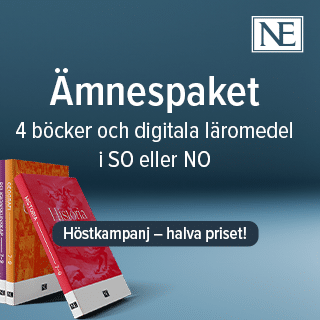Instructional technologies in science education: Students’ scientific reasoning in collaborative classroom activities
Virtuella lärmiljöer får inte i sig eleverna att förstå vetenskapliga fenomen och begrepp bättre. Det visar Göran Karlssons avhandling. – Detta visar på vikten av stödfunktioner som dels kan byggas in i applikationerna och som också tillhandahålls av lärare, säger han.
Göran Karlsson
Per-Olof Wickman, professor
Göteborgs universitet
2012-03-30
Instructional technologies in science education: Student´s scientific reasoning in collaborative classroom activities
Institutionen för tillämpad informationsteknologi
Instructional technologies in science education: Student´s scientific reasoning in collaborative classroom activities
This study originates from an interest in how students interpret scientific con-cepts demonstrated with animated instructional technologies. Currently, science education makes use of diverse kinds of instructional methods. For the ad-vancement of instruction, new technologies have continuously been employed. Such new instructional technologies have always been accompanied with expec-tations that they should reform teaching. The availability of IT in schools and the selection of animated displays for instructional purposes provide new op-portunities for education.
This thesis accounts for three empirical studies of students’ collaborative work with instructional technologies. For the purpose of studying students’ scientific reasoning, two kinds of animated instructional technologies were designed. The three studies focused on designing and exploring the whole educational intervention and are located in the area of design-based research. They provide detailed analyses of secondary school students’ collaboration on an assignment of giving a joint written account of the instructed concept. Analytically, this is done within a socio-cultural framework that uses interaction analysis inspired by ideas from conversation analysis and ethnomethodology. Study I and Study II report observations from instructional technologies that deal with the flow of materials in the carbon cycle.
The two studies were connected, as the outcomes from the first study informed the educational framing of the second study. Study III reports findings from a sub-study of a design experiment where students worked in a virtual laboratory to learn about the solubility of gas in water. The results from the studies show that students’ reasoning was influenced by several aspects, such as the characteristics of the animated display, language use, school cultural norms, the formulation of the assignment and the students’ pre-knowledge. The analyses also evinced that the students’ interpretation of a demonstrated concept often diverted from a canonical scientific one, which warns against assuming that the collaborative meaning-making of animated instructional technologies automatically leads to a creation of the desired scientific concept.
These findings emphasise that when designing and applying animated instructional technologies in education, one has to consider a wider context where assignment formulation, teacher guidance, school culture and semiotic processes influence how students approach and frame their assignment.
Relaterade länkar

Fritidshem
 Åk F–6
Åk F–6 Matematikångest
 Åk 4–Vux
Åk 4–Vux 






